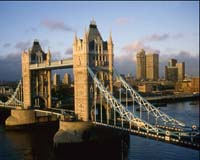 |
Paris (AFP) Nov 17, 2009 Carbon emissions from fossil fuels rose two percent last year to an all-time high, leaving Earth on a worst-scenario track for global warming, scientists reported on Tuesday. They also voiced concern for the world's oceans and forests, saying the capacity of these fabled "sinks" to soak up dangerous greenhouse gases was fading. And they placed the spotlight on surging emissions by China and developing countries, explaining that a huge chunk of this carbon comes from exporting goods that are consumed in rich nations. The paper, published by the peer-reviewed journal Nature Geoscience, comes in the runup to December 7-18 UN talks in Copenhagen aimed at crafting a pact to combat climate change from 2013. Global emissions from fossil fuels in 2008 amounted to 8.7 billion tonnes of carbon, an increase of two percent over 2007, the Global Carbon Project (GCP), gathering more than 30 climate specialists, reported. The 2008 tally amounts to a decline over the average annual increase of 3.6 percent since the start of the decade, and can be pinned to the start of the world financial crisis, which triggered a fall in economic activity, it said. Emissions last year were 29 percent higher than in 2000, reflecting a sprint in economic growth this decade, and a massive 41 percent greater than in 1990, the reference year for the UN's Kyoto Protocol. Pollution "continued to track the average of the most carbon-intensive family of scenarios" put forward by the UN's Nobel-winning Intergovernmental Panel on Climate Change (IPCC), the paper warned. Under the IPCC's "A1F1" scenario, Earth's surface will warm by around four degrees Celsius (7.2 degrees Fahrenheit) by 2100 compared with 2000 -- a rise consistent with a wipeout of species, widespread hunger, flooding, drought and homelessness. The oceans and forests, which absorb most of the carbon dioxide (CO2) in the seas and through photosynthesis, are failing to keep up with the gigatonnes of emissions, said the researchers. In the last 50 years, the proportion of CO2 pumped into the atmosphere that remains there has risen from about 40 to 45 percent, thus fuelling the greenhouse effect. "This is of concern, as it indicates the vulnerability of the sinks to increasing emissions and climate change, making natural sinks less efficient 'cleaners' of human carbon pollution," said GCP Executive Director Pep Canadell of Australia's Commonwealth Scientific and Industrial Research Organisation (CSIRO). The researchers also made these points: -- developing countries now greatly outrank rich countries as the world's biggest source of carbon emissions, a switchover that occurred in 2005. But a quarter of their growth in emissions can be accounted for by increased trade with the West. In China alone, 50 percent of the growth in emissions from 2002 to 2005 came from the country's export industries. -- coal surpassed oil as an emissions source for the first time in recent decades. It accounted for 40 percent of CO2 from fossil fuels in 2008, compared with 36 percent for oil. -- the share of deforestation and intensive farming in overall carbon gases has fallen. From 1990-2000, they accounted for 20 percent of the total; it was only 12 percent in 2008. The reason: emissions from this sector fell from around 1.5 billion tonnes a year to 1.1 billion tonnes in 2008, thanks to fewer forest fires in Southeast Asia and lower-than-average deforestation in Amazonia. At the same time, emissions from oil, gas and coal rose. -- worldwide CO2 emissions in 2009 are predicted to fall by 2.8 percent in response to the financial crisis, signalling a return to 2007 levels. But emissions could rise anew, depending on a pickup in economic activity, efforts to improve energy efficiency and the outcome of talks to tackle climate change. Share This Article With Planet Earth
Related Links
 China seeks 'fair' climate outcome but says rich bear burden
China seeks 'fair' climate outcome but says rich bear burdenSingapore (AFP) Nov 12, 2009 China said Thursday it would seek a "fair and reasonable" result at world climate talks next month but insisted rich nations must bear most of the burden for tackling global warming. "Climate change is an enormous challenge faced by all of mankind and requires a cooperative response by all countries," Foreign Minister Yang Jiechi said in a speech at the Asia-Pacific Economic Cooperation ... read more |
|
| The content herein, unless otherwise known to be public domain, are Copyright 1995-2009 - SpaceDaily. AFP and UPI Wire Stories are copyright Agence France-Presse and United Press International. ESA Portal Reports are copyright European Space Agency. All NASA sourced material is public domain. Additional copyrights may apply in whole or part to other bona fide parties. Advertising does not imply endorsement,agreement or approval of any opinions, statements or information provided by SpaceDaily on any Web page published or hosted by SpaceDaily. Privacy Statement |